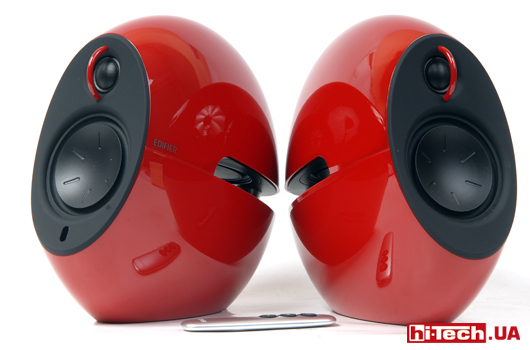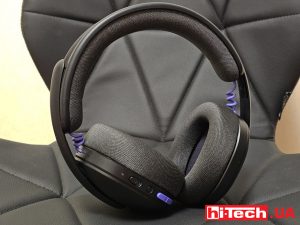With or without subwoofer? Speaker 2.0 and 2.1 test
01.02.08
Film industry experts are convinced that sound accounts for half of the emotional impact when watching a movie. It’s hard to disagree. And it’s even more difficult to refute the fact that nowadays you can’t live without good sound in a home PC or, especially, a laptop. After all, if you have enthusiasm, time and physical space on your desktop, with the help of good acoustics you can organize not only a kind of chill-out corner for yourself or an impressive movie screening, but also arrange a fun dance “party” with karaoke… And what’s especially pleasing is the accessibility pretty decent speaker systems, thanks to which any PC will literally “sound”…
But if everything is extremely clear about the need for acoustics as such, the question of its direct choice still remains open for many. Of course, you can get a multi-channel sound playback device, surrounding yourself with speakers and wires, for example, a 5.1 system. But first of all, quality
5-channel acoustics as a home theater for a PC requires much more expense, and secondly, a sufficiently spacious room for the correct placement of each speaker. In addition, the frequency characteristics of 5.1 systems are “tailored” for movie soundtracks, and most modern sources, in particular music, continue to be in stereo. And with games that require surround sound for maximum immersion in the process, modern 2.0 and 2.1 systems cope quite well. Well, let’s try to figure out which two-channel playback devices out of the dozen we tested (costing from $20 to $150) are worth paying special attention to.
Duet or trio
But we will begin, perhaps, with a question that interests many users: what to choose – a 2.0 speaker system or 2.1? Let’s make a reservation right away: it’s impossible to give a definite answer, since each subtype of desktop acoustics has both obvious advantages and, alas, disadvantages common to many models.
Back in the early days of multimedia, active 2.1 speakers were created with the goal of freeing up desktop space. Today, compact satellites are still placed next to the monitor, while the bulkier subwoofer goes under the table. And not just for the sake of saving space, but also due to the design of the subwoofer itself. Our test also confirmed the effectiveness of this solution: all seven 2.1-channel systems left a pleasant (or not so pleasant) impression only with the above-mentioned subwoofer installation.
As for the direct differences between 2.0 and 2.1 systems, one of the most obvious is that the former are considered more “musical”, while 2.1 devices are more suitable for playing games with rich sound and watching movies, in a word, for playing soundtracks with rich low frequencies. On the other hand, many gamers will probably immediately note: only headphones will provide the best sound in games…
However, as testing practice has shown, many 2.0-channel systems are quite suitable for basic sound tests, including games with rich sound. Moreover, some representatives even managed to successfully compete with 2.1-channel acoustics in low-frequency techniques (a good example is the Solo 7 systems from Microlab and Targa Duo 7).
On the other side of the speaker
Another trend is that most of the 2.0 systems (except for the Creative Inspire T10) can hardly be called purely desktop. They use a two-way design (the same Microlab Solo 7 and Targa Duo 7 satellites are equipped with two wideband speakers). This speaker assembly includes an advanced tweeter to produce detailed highs and create an immersive experience, and a midrange driver that typically handles bass for maximum realism in movies and games. On the one hand, this allows large representatives to achieve “diaphragm-shaking” lows, on the other hand, they hardly fit on the desktop. In general, as the test showed, 2.0-channel devices today are the lot of lovers of “honest”, not particularly “heavy” sound at medium and moderate volume levels.
As for 2.1 systems, the subwoofer is responsible for moving a large volume of air (when reproducing low frequencies), therefore a speaker with a large diffuser or the presence of two full-range speakers at once is not so critical in this case. However, one broadband speaker and a plastic case are not always enough for good sound. Moreover, in evaluating “surround” sound, we used a much more demanding approach to 2.1 systems. And, it must be admitted, not everyone was able to cope with low frequencies, explosions, shots and other “surprises” (the super-budget version Easy Touch ET-140 was the heaviest of all).
It is also worth noting the obvious advantage of some systems – the presence of an external amplifier unit with controls on it (like Microlab PRO 3, H-200 and H-220, as well as Edifier C3). With this approach, the entire electronic amplification part is “decoupled” from the acoustic one. At the same time, amplifier displays make setting the audio input, changing volume, balance, and other things more convenient.
Another important feature of speakers is the presence of useful interfaces. Most often, there are two line inputs (one in the front), which makes it easy to connect a player or any other device. A headphone output wouldn’t hurt either, so as not to disturb your family with music. By the way, of the testing participants in the 2.0 category, only the small-sized Creative speakers are equipped with an ear connector. Among the 2.1 systems there are already four such representatives – Easy Touch ET-140, both speakers from Edifier, as well as Logitech Z-4i.
Decoration instead of quality?
“So much attention to design! There would be so much content…”, the impression of one of the hi-Tech PRO employees best demonstrates, perhaps, the main “sin” of desktop acoustics manufacturers. Indeed, the “brand new” appearance, alas, does not always correspond to the quality of the acoustics. However, oddly enough, many of the innate sound defects of a particular model can be recognized precisely by its design and appearance. Thus, extremely small-sized and stylish 2.0 acoustics often contain not only filters under the body, but also a power supply (by the way, all test participants are equipped with a built-in power supply), which significantly reduces useful acoustic noise. And 2.1 acoustics that are too powerful in terms of characteristics with a serious subwoofer, but satellites that are simple inside and beautiful on the outside are fraught with a very sad sound… Among the tested models, in the “design/sound quality” assessment, we boldly highlight the Edifier S530 (special respect for the presence of both wired and small wireless control panels), as well as the stylish Microlab H-200, stylized in mahogany. Among the 2.0 systems are Microlab PRO 3 made of light wood and Defender Mercury 45 with a control panel placed on the right speaker and the only karaoke function in the test (however, the satellite speaker power of 23 W leaves one wanting a little more).
Well, as the test showed, there are plenty of nuances when consciously choosing two-channel speaker systems for a PC. Therefore, we suggest taking a look at the final testing table, as well as at those systems that pleased us with their sound the most. We hope this will help you make the right choice and the usual “sound world” near your home or work PC, created by the clicking of the mouse, the clicking of the keyboard and the slight hum of the coolers, will suddenly expand to the size of a kind of concert hall…
Tested models:
- Creative Inspire T10
- Defender Mercury 45
- Microlab PRO 3
- Microlab Solo 7
- Targa Duo 7
- Easy Touch ET-140
- Easy Touch ET-684
- Edifier C3 Edifier S530
- Logitech Z-4i
- Microlab H-200
- Microlab H-220
Web-droid editor
Don't miss interesting news
Subscribe to our channels and read announcements of high-tech news, tes
Oppo A6 Pro smartphone review: ambitious

Creating new mid-range smartphones is no easy task. Manufacturers have to balance performance, camera capabilities, displays, and the overall cost impact of each component. How the new Oppo A6 Pro balances these factors is discussed in our review.
Logitech G G325 headphones review: reliable and long-lasting

Logitech G has released a new gaming headset that offers good ergonomics, stable connectivity, and high battery life at a very affordable price. Let’s talk about the Logitech G G325 in more detail
WordPress.com adds AI-powered assistant for editing design and content artificial intelligence internet WordPress
WordPress.com, owned by Automattic, is expanding its use of AI tools. The previously introduced generative site builder has been transformed into a permanent assistant that works directly in the editor
New Google Pixel 10a smartphone is not much different from its predecessor Google smartphone
New Google Pixel 10a features a 6.3-inch Plastic OLED display with a 120Hz refresh rate, a resolution of 2424×1080 pixels, and a peak brightness of up to 2000 nits.





